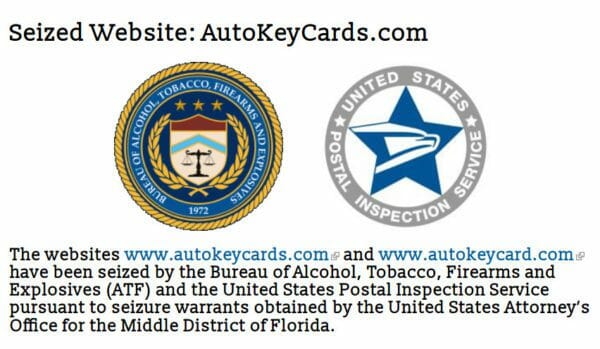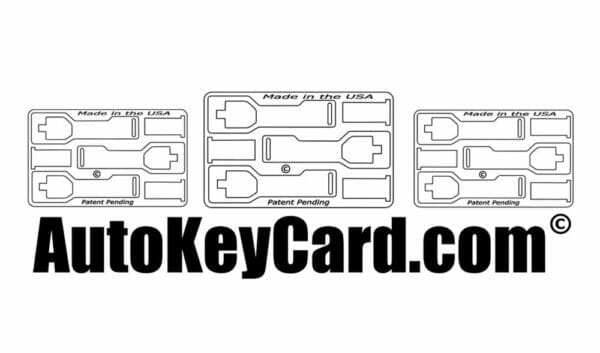
U.S.A. –-(AmmoLand.com)-— The Supreme Court decision in Bruen sets an appropriate standard for evaluating laws that violate a fundamental, enumerated right protected by the Constitution in the Second Amendment.
When there is a challenge to a federal or state rule, law, or regulation claiming such rule, law, or regulation violates the Second Amendment, the court is to evaluate the law based on the historical tradition of firearms regulation. It is up to the State to prove the longstanding history and cultural acceptance of such laws, rules, and regulations. If the State cannot prove such history and acceptance, the laws, rules, or regulations as of the date of ratification in 1791, or possibly, the date of ratification of the Fourteenth Amendment in 1868, are invalid under the Second Amendment.
One of the first legal challenges submitted to a court, relying on the Bruen decision, was from the defense representing CRS Firearms in what is commonly known as the Autokeycard case.
The new brief filed by Hoover’s legal team is a motion to dismiss the case and declare the National Firearms Act or NFA unconstitutional.
The brief relies on the recent Supreme Court decision in the New York State Pistol and Rifle Association v. Bruen. The main focus in Bruen was the right of an individual to carry a firearm outside the home for self-defense, but in addition to confirming that right, SCOTUS also ruled that the two-step process that courts have been using in Second Amendment cases was also unconstitutional.
This correspondent initially considered the motion to be a “hail Mary” type long shot. After reading the motion, it is a well-reasoned and crafted brief that gives the court several options to dismiss the case.
From the motion to dismiss:
Defendant is charged under 18 U.S.C. 5861 and 5871, as well as conspiracy to commit those offenses. The charged statutes deal with the taxation and transfer of machineguns, and other weapons. The Government alleges the tchotchkes at issue —the “auto key cards”— to be machineguns. What’s more, actions subsequent to the passage of the charged firearm statutes render it impossible to comply with the taxing provisions, thus leaving the statutes a bizarre, vestigial area of law passed pursuant to the taxing power which — in dubious constitutionality — is used by the Government as an independent effective prohibition on the sale, transfer, or possession of any controlled devices not registered by 1986.
The brief to dismiss hands the Court several theories to dismiss the charges against CRS Firearms. Each one is an incremental step toward dismantling the egregiously unconstitutional and irrational body of regulatory law, which has been erected on a fragile foundation of the federal authority to tax.
The motion shows the regulatory change declaring the autokeycard a machinegun is very recent. It was created by regulatory fiat. It is not supported by any cultural history.

The motion shows that the 1986 ban on collecting taxes from the purchase of machineguns made after 1986 was ahistorical and unprecedented. The motion shows the 1986 law made it impossible for people to conform with the requirements of the 1934 National Firearms Act.
The motion shows the 1934 NFA was of dubious constitutionality because it depends on the taxing authority, deliberately crafted to undermine Second Amendment protections.
If the court decides to dismiss the case, it could do so under several theories:
- 1. It could declare the regulatory decision to declare the Autokeycard a machine gun to be an invalid expansion of regulatory power, violating the First Amendment and the Second Amendment;
- 2. It could declare the 1986 ban on the purchase of machine guns due to the inability of the ATF to collect taxes from the sale of machine guns under the National Firearms Act to be ahistorical and invalid under the Second Amendment.
- 3. It could declare the 1934 NFA and subsequent acts to be ahistorical and invalid as an expansion of taxing power to undercut the Second Amendment.
- 4. It could declare the 1934 NFA and subsequent acts as ahistorical and invalid violating the Second Amendment.
Analysis:
Courts have historically been unwilling to make large policy decisions (unless massively supported by the dominant media and political power).
The Courts usually take the lowest hanging fruit, requiring the least disruption of the law, on the theory a small bite is easier to swallow than a large bite.
In the Autokeycard case, the path of least resistance may be to cite the First and Second Amendments, and the recent West Virginia v EPA case, to say the ATF overstepped its regulatory limits when it declared the autokeycard to be a machinegun without proper notice and procedure, and dismiss the case.
About Dean Weingarten:
Dean Weingarten has been a peace officer, a military officer, was on the University of Wisconsin Pistol Team for four years, and was first certified to teach firearms safety in 1973. He taught the Arizona concealed carry course for fifteen years until the goal of Constitutional Carry was attained. He has meteorology and mining engineering degrees and retired from the Department of Defense after a 30-year career in Army Research, Development, Testing, and Evaluation.

from https://ift.tt/Si6gQwK
via IFTTT

No comments:
Post a Comment